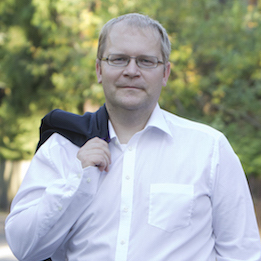We need to talk about Ukraine. Without excessive international political correctness and wishful thinking.
Let us remember for a moment why Crimea and a part of Eastern Ukraine have been taken over by Russia and why there are still constant fears and tensions over a new offensive. The battle is for more than just those areas. It is for the whole Ukraine and for the other parts of the former Soviet Union, except for the countries that managed to join NATO and the European Union. Russia wants to stop the former Soviet republics from moving to the West and making democratic changes. Russia also wants Ukraine and the other former Soviet republics to join the Eurasian Union and the Customs Union.
There needs to be a change in attitude in Ukraine for that to happen. Ukraine did not change its westernising politics despite economic and political pressure from Russia, and so military force had to be used. The same military force that worked in 2008 and scared a number of NATO members away from the actual NATO membership perspective of Georgia.
It is very difficult to expect a quick and easy solution that would stop the Russian aggression in Ukraine. Either the Ukrainian government gives up trying to approach the EU and joins the Eurasian Union and the Customs Union or the Russian government changes its mind and gives up its ambitions. It is clearly a very principled confrontation without an easy and quick solution. Still, I think the latter option is considerably less likely than the former. If that is to happen, then the war will end quickly, because there are no other reasons.
However, it should be remembered that if Ukraine were to succumb to the pressure and sink back into the Russian sphere of influence, there will be an even faster and greater pressure on Moldova, Georgia, Azerbaijan and some still obstinate Central Asian countries such as Uzbekistan and Turkmenistan to make choices that are more convenient for Moscow.
Considering that, it should be explained what the European Union actually wants and what it is ready to do. If the EU wants Ukraine to move forward with the rule of law and market economy reforms and not to crumble under Russian military and other types of pressure, much more has to be done, and much faster. This, however, requires the consensus of 28 countries.
What is the economic situation of Ukraine and its people? Russia’s aggression demands millions every day to maintain the front and increase the defence capability. Hundreds of thousands of people are no longer working and therefore not contributing to either the Ukrainian economy or their own standard of living, because they are either internally displaced persons or called to military service. International investments to Ukraine have decreased dramatically, because insecurity and fear of war have taken their toll. Trade has decreased significantly. Contributing to the humanitarian aid and dealing with over a million IDPs are a heavy burden on the budget.
In addition, the subsidies to citizens have decreased, which has led to a huge increase in utility bills, and the hryvnia (UAH) exchange rate has plummeted in just a few months. As a result, millions of people are now even poorer and less content. More and more people just want peace and a chance to make ends meet for themselves and their children. It’s very human, especially considering that many people still have no clear idea what will be good about approaching the EU. However, they know exactly what has got worse and that it does not stop there.
Therefore, in the next months Russia needs to maintain military pressure and tension in East Ukraine, so the Ukraine society would be under continuous stress, investments would not be restored, the standard of living would diminish and people would be more and more discontent. The support for the government and political parties has decreased considerably and that trend is unlikely to change. In the autumn there will be local elections, which in Ukraine include electing leaders in dozens of big cities in addition to rural areas. The pro-Russian opposition is already excited. Moscow has high hopes that with increasing pressure and poverty it is possible to steer Ukraine’s domestic politics in their desired direction without new military offensive.
What have the EU and US done and what could be done to help Ukraine stay on the course for a law-governed state and market economy despite all difficulties? First of all a quick financial and reform aid. At a recent Eastern Partnership summit in Riga a 1.8 billion euro loan was presented as something extraordinary. It is not a particularly huge leap. The prime minister of Ukraine has said that their current minimum need is 25 billion euros. This or an even larger sum is actually affordable to the EU, US and other contributors. Greece, for example, has by now received about twenty times as much.
Visa-free travel. The Ukrainian society is depressed by the war that has lasted for over a year, and they need strong emotional support from the EU. Unfortunately they did not receive it at the Eastern Partnership summit in Riga. A specific decision concerning a deadline was expected there. Letting the citizens of Ukraine travel visa-free would show that the EU trusts them. That kind of support is badly needed right now. Even if the majority of Ukrainians will not use the visa-free travel option in the foreseeable future due to lack of funds, it would still be a very important positive impulse. In addition, the citizens of Ukraine would be able to travel in the EU visa-free before the citizens of Russia, even though a few years ago the situation might have been the other way around.
The citizens of Moldova have been able to travel visa-free in the EU for a year now and it has worked well. In addition to a practical meaning it also carries a political meaning. 75,000 residents of Transnistria, which is under Russian control, have taken Moldovan citizenship as well.
European perspective. The EU must constantly and clearly tell Ukraine that every European country which has fulfilled the necessary criteria may apply for EU membership. As strange and frustrating for Ukraine as it may be, the EU countries have not been able to come to an agreement on that clear message to Ukraine, not even for the last Eastern Partnership summit. That sends a clear message how much interest there actually is in Ukraine’s complete transformation into a Western democracy.
The ratification by all EU members of the association agreement that was reached a year ago between the EU and Ukraine. There was a clear idea after reaching the agreement that it would be approved by all EU members by the time of the Eastern Partnership summit. However, that has not been achieved. Eight countries have not ratified the agreement, and four, including Greece and Cyprus, have not even started the necessary process.
The support for Ukraine in defending their country. If it is unrealistic to reach an agreement on shipping weapons to Ukraine, then many other supporting actions should be carried out more than has been done until now. For example, humanitarian aid for people who have lost their homes, help and advice concerning cyber attacks, any kind of logistical and supply aid. The homes destroyed in the January missile attacks in Mariupol have still not been restored due to lack of funds, even though it could have prevented the increase of new IDPs.
The fundamental choice for the EU, the US, and other Western countries is whether there is a genuine wish to help Ukraine into the Western political and economic space, or is that objective not too serious. If the answer is yes, it is necessary to start a grand and extensive aid and reform programme. Europe has a similar experience from the middle of the 20th century. It would take tens of billions of euros, a thorough reform plan and thousands of experts to carry those plans out. In addition, it would take investments by big Western companies into the Ukrainian energy sector, but also into many other economic sectors. Ukraine is starting a big privatisation programme, and Western companies should definitely participate. In the near future it is especially important in the energy sector. Along with the money and know-how of democratic countries’ companies Ukraine would receive a different kind of work culture and principles that would be of great help in cutting corruption.
There is not much time left for all that. Ukrainian society is at its breaking point and Russian exhaustion tactics seem to be working. Most importantly, are there enough European and US politicians who are willing to contribute thoroughly to the change in Ukraine? Or is the current uncertainty satisfactory, so that if Ukraine were to sink back under the influence of Moscow, it would be met with sighs and comments that it was inevitable?
Let us remember a saying from years ago that if the EU does not succeed in its own immediate neighbourhood, then how can one assume for it to succeed even farther away. The EU’s actual intentions and practical execution in Ukraine are being closely observed by Moldova, Georgia, and other former Soviet republics, as well as the EU’s southern neighbours, from Morocco to Iran, in order to know who and to what extent should be taken seriously in the world today.
Urmas Paet
Member of the European Parliament
Minister of Foreign Affairs of Estonia 2005-2014

